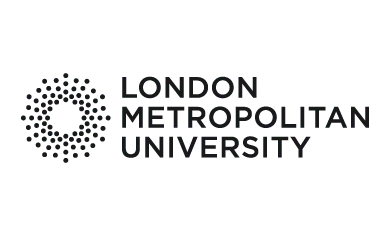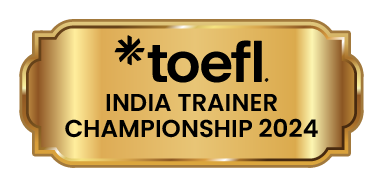Study In UK
Table of content
Important Facts About UK
- The UK hosts some world-renowned universities and colleges, including Cambridge and Oxford.
- UK has impressive 90 universities that feature in the QS University Rankings 2024.
- London hosts 18 universities and is ranked first in the QS Best Student Cities 2024.
- The Universities of Oxford and Cambridge boasts of their alumni lineage that include many thinkers, Nobel Laureates, artists, and politicians like TS Elliot (writer), Amartya Sen (economist), Hugh Grant (actor), Oscar Wilde (Poet), David Attenborough (broadcaster), Charles Darwin (naturalist), Bertrand Russell (philosopher) and many more.
- Every year, the universities in the UK are subjected to inspection by the Quality Assurance Agency (QAA). These checks ensure that the universities comply with the government-set guidelines for research, learning, and teaching thus enhancing the overall academic experience to study in UK for Indian students.
- The students studying in the UK for more than six months can take advantage of the National Health Service.
- The country allows students to work 20 hours every week and they can earn a minimum wage of GBP 118 a week.
- The UK has a 90% student satisfaction rate, which is quite high among all Anglophile countries like the US, Canada, Australia, and Ireland.
- Most UK universities have student support centres that guide international students on various issues, making their study and stay in the UK hassle-free.
- China, India, Hong Kong, Malaysia, Italy, France, Germany, Nigeria, and Greece are a few countries that send most students to the UK.Every year, the universities in the UK are subjected to inspection by the Quality Assurance Agency (QAA). These checks ensure that the universities comply with the government-set guidelines for research, learning, and teaching thus enhancing the overall academic experience to study in UK for Indian students.
Why Study in UK?
The UK assures unmatched student experiences. From its world-recognized universities to innovative teaching methodologies to progressive study curriculum, the country offers everything that a student needs to accomplish a successful global career.
1. WIDELY RECOGNIZED UNIVERSITIES
UK continues to be an international student’s favourite study abroad destination because of the widely recognised universities present. The country is home to multiple highly-ranked universities with an academic reputation of 75-100. As per QS World University Rankings 2024, over 90 USA universities are on this list. Each of these universities excels in terms of academic and employer reputation.
| University | Ranking |
|
|
Ranked 2 |
|
|
Ranked 3 |
|
|
Ranked 6 |
|
|
Ranked 9 |
|
|
Ranked 22 |
2. ACCESS 1- YEAR MASTER PROGRAMS
UK’s 1-year masters programs are another reason the country sees high growth among students who wish to pursue higher education here.
There are multiple UK universities, like London School of Economics, University of Oxford, etc., that offer 1-year master’s programs in MBA, Master of Science, Master of Arts, etc. Despite the 1-year study duration, the course has been designed to equip the students with the knowledge and skills required to perform their job roles better. Since you complete this program in 1-year, students can join the corporate world early and put all their learnings into practice instantly.
3. ENCOURAGES STUDENT RETAINMENT AFTER GRADUATION
4. MULTIPLE PLACES TO EXPLORE
5. HUB FOR TOP CORPORATES
Education System
Undergraduate
This is the bachelor’s program, which spans over three years. Most degrees are awarded at honors level. It takes three years to complete in Wales, England, and Northern Ireland. This may take four years in many Scottish Universities. Many vocational and professional courses may take longer to complete. For instance, dentistry and medicine courses may take six years to complete.
Graduate
In the UK, students can enroll for taught and research master’s degree. The taught master’s degree would take a year to complete and the research master’s degree would take 2 years, as well as the doctoral degree would take 3 years to complete. The Master of Business Administration takes 1 to 2 years to complete. The PhD programs would take 2 to 7 years for completion.
Vocational Diplomas
In the UK, vocational sub-degree diplomas like The Diploma in Higher Education (DipHE), Higher National Certificate (HNC), and Higher National Diploma (HND) take 1-2 years. International students can join 2-year diplomas at state colleges, skipping the first 2 years of a degree. Tutorial colleges provide one-year diplomas equivalent to one year of university education. These diplomas enable students to gain admission to the second year of university.
Types of Educational Institutes in the UK
1. Autonomous and diverse institutions: They are public-funded, independent, and autonomous.
2. Universities: There are five types of universities, including ancient universities, civic universities, plate glass universities or 1960s universities, new universities, and Russell Group universities.
3. Publicly funded higher education providers: These are approved by a higher education institution (HEI) and possess degree awarding powers. Pearson is an example of publicly funded higher education provider.
4. Alternative education providers: These institutions provide education to students who couldn’t complete education for some reasons.
5. Groups of Institutions: These include institutions of common interest that have formed groups. The Russell Group, the University Alliance, and the Cathedrals Group are some examples of Groups of Institutions.
Grading System in UK
| Grade Letter | Percentage Score | Degree Class | Grade Definition | |
| Honors Degree | Foundation Degree | |||
| A | 70 – 100% | First | Distinction | Excellent to Outstanding |
| B | 60 – 69% | Upper Second 2:1 | Merit | Good to Very Good |
| C | 50 – 59% | Lower Second 2:2 | Pass | Satisfying |
| D | 40 – 49% | Third | Pass | Eligible for Pre-Masters |
| E | 30 – 39% | FAIL | FAIL | Unsatisfactory |
| F | 0 – 29% | FAIL | FAIL | Unsatisfactory |
Actualize Your Study In UK Dreams By Booking Your Free Career Counselling Session With Our Expert Counsellors
Top Courses to Study in UK for Indian Students
Pursuing a course in the UK has multiple benefits, such as:
- The courses are designed to help students tackle their chosen field’s current and future challenges. This proves that the course curriculum here is updated regularly.
- Every UK university regularly undergoes an academic inspection check by the Quality Assurance Agency (QAA) for Higher Education to deliver an enhanced learning environment.
- UK offers a 1-year Master’s program that has grown to become one of the highly preferred course choices amongst international students. The course uses practical teachings, expert guidance, advanced training and live workshops that give students better academic leverage. Popular universities such as the University of Oxford, University College London and more offer this course (ex: MBA, Master of Arts, Master of Finance).
- UK courses demonstrate a set structure to educate students. There are two stages: first, building a strong academic foundation. The second stage includes exploring the course specialisations/subtopics in depth. This helps students grasp the course learnings with an insightful approach.
1. HEALTHCARE
- Top courses to pursue: Nursing, Dentistry, Physiotherapy are popular examples.
- In-Demand course: Nursing, Pharmacy, MBBS.
- Top Universities: University of Oxford, University College of London and King’s College London.
2. LAW
- Top courses to pursue: Business Law, Criminal Law, Public Law are popular examples.
- In-Demand course: Corporate Law, Business Law, Constitutional Law.
- Top Universities: University of Oxford, University of Cambridge and Durham University.
3. SOCIAL SCIENCE
- Top courses to pursue: Economics, Political Science, Sociology are popular examples.
- In-Demand course: Economics, Political Science, Social Work.
- Top Universities: University of Oxford, University College of London and University of Bath.
4. BUSINESS
- Top courses to pursue: International Business, Accounting, Finance are popular examples.
- In-Demand course: Business Psychology, Business Analytics, Business Administration.
- Top Universities: University of Oxford, University of Cambridge and University of Birmingham.
5. TECHNOLOGY
- Top courses to pursue: Computer Science, Software Engineering, Cloud Computing are popular examples.
- In-Demand course: Artificial Intelligence, Cloud Computing, Cybersecurity.
- Top Universities: University of Cambridge, University of Birmingham, and Imperial College London.
- The UK hosts some world-renowned universities and colleges, including Cambridge and Oxford.
- UK has impressive 90 universities that feature in the QS University Rankings 2024.
- London hosts 18 universities and is ranked first in the QS Best Student Cities 2024.
- The Universities of Oxford and Cambridge boasts of their alumni lineage that include many thinkers, Nobel Laureates, artists, and politicians like TS Elliot (writer), Amartya Sen (economist), Hugh Grant (actor), Oscar Wilde (Poet), David Attenborough (broadcaster), Charles Darwin (naturalist), Bertrand Russell (philosopher) and many more.
- Every year, the universities in the UK are subjected to inspection by the Quality Assurance Agency (QAA). These checks ensure that the universities comply with the government-set guidelines for research, learning, and teaching thus enhancing the overall academic experience to study in UK for Indian students.
- The students studying in the UK for more than six months can take advantage of the National Health Service.
- The country allows students to work 20 hours every week and they can earn a minimum wage of GBP 118 a week.
- The UK has a 90% student satisfaction rate, which is quite high among all Anglophile countries like the US, Canada, Australia, and Ireland.
- Most UK universities have student support centres that guide international students on various issues, making their study and stay in the UK hassle-free.
- China, India, Hong Kong, Malaysia, Italy, France, Germany, Nigeria, and Greece are a few countries that send most students to the UK.Every year, the universities in the UK are subjected to inspection by the Quality Assurance Agency (QAA). These checks ensure that the universities comply with the government-set guidelines for research, learning, and teaching thus enhancing the overall academic experience to study in UK for Indian students.
All courses offered in the UK aim to help students achieve their career aspirations. Due to this, UK student graduates have a better advantage in securing their dream job when applying to leading UK corporations or job markets globally.
Popular Universities to Study in UK for Indian Students
| Institution | UK Ranking | World Ranking |
|
|
1 | 2 |
|
|
2 | 3 |
 Imperial College London Imperial College London |
3 | 6 |
|
|
4 | 9 |
|
|
5 | 22 |
|
|
6 | 32 |
|
|
7 | 40 |
|
|
8 | 45 |
|
|
9 | 55 |
|
|
10 | 67 |
Popular Universities in the UK That Do Not Require IELTS / TOEFL
| University | Alternate Exam Scores Accepted |
| Birmingham City University | OIETC, Pearson PTE Academic and PTE Academic Online, Euroexam Academic English C1, LanguageCert International ESOL B1 and B2 |
| Bangor University | Bangor University English Language Test (BUELT), Pearson PTE and PTE Academic Online, Cambridge English Language Assessment, Trinity College London – ISE II & III, Duolingo English Test, LanguageCert International ESOL (both Online and Paper based), IELCA (International English Language Competency Assessment), KITE (Kaplan International Tools for English) |
| Robert Gordon University | Linguaskill, Indian State Boards, BACIET – English Test, INTO Foundation Programme English, Language Cert ESOL (B2) SELT Test, PTE Academic, Password English |
| London South Bank University | Pearson Test of English Academic (PTE Academic), LanguageCert SELT or International ESOL (IESOL) Exam, University of Cambridge ESOL Examinations, Password, IGCSE English as a Second Language / First Language English (Cambridge Assessment) |

Bedfordshire University

Chester University

Middlesex University

Teesside University

London Metropolitan University

Oxford Brookes University
Popular Cost-Effective Universities in UK
| Universities Name | Type of University |
|
|
Public university |
|
|
Public university |
 London Metropolitan University London Metropolitan University |
Public university |
|
|
Public university |
|
|
Public university |
|
|
Public university |
|
|
Public university |
|
|
Public university |
|
|
Public university |
Admission Process to Study In UK for Indian Students
Undergraduate Admission Process:
The admission process in the UK is streamlined and needs to be followed meticulously for effective results.
- Choose the university, course, and college.
- Register on Universities and Colleges Admissions Service (UCAS) providing all the personal details.
- The UCAS will share a unique username for your perusal.
- Sign in to fill in the necessary details, including funding options, special needs (if any), residential status, and more.
- Add course choice, you can choose five courses without any course order.
- Complete full education background with evidence, employment history, and other details.
- Submit personal statements that include the candidate’s strengths and weaknesses.
- Review the application before submitting it.
- Lastly, add a reference, pay the fees, and submit your application.
- Track the application status through the UCAS.
- Next, accept your offer, as the college or university will contact you to inform if you have received the offer to study or not.
- Arrange your funding.
- Apply for your VISA.
Get ready to fly to your destination!
Graduate Admission Process:
- Students can apply directly on the university website for postgraduate courses. These websites provide course information and step-by-step guidance on the application process.
- Many drama, dance, and music courses require application through UCAS Conservatories at postgraduate level.
- Students planning to take teacher training courses at postgraduate courses must apply through the UCAS Teacher Training portal.
Eligibility Criteria to Study In UK for Indian Students
- For Undergraduate Courses: The students must possess at least 12th state boards or IB or IGCSE to apply for most courses. Most courses may also require students to submit scores of pre-16 qualifications like GCSE Maths and English, and so on.
- For Postgraduate Courses: The students must possess 2:2 in the bachelor’s program. Some courses require students to possess degrees in science-related subjects. However, others may require students to submit details regarding industry experience.
- The students must possess 2:1 in the Russell group University for bachelor’s program. Some courses require students to possess degrees in science-related subjects. However, others may require students to submit details regarding industry experience.
- PhD: The students must possess 2:1 in the master’s program and are required to submit a research proposal explaining the study scope.
- For all courses, the applicants must demonstrate their English proficiency by undertaking tests like TOEFL, IELTS, or PTE Academic.
- Some universities may conduct candidate interviews, too.
- Lastly, the university may also ask for information on student’s health, finance, and more information.
- Letter of Recommendation
- Resume/CV
- Statement of Purpose
Requirements to Study in UK for Indian Students
Undergraduate Programs
If students are planning to do their Bachelor’s in the UK, they must obtain at least 70 - 80% in grade 12. Apart from this, the minimum score at IELTS should also be 6.0
PhD Programs
For a Doctoral Program in the UK, students need at least 60% in their Master’s Degree. The scoring should be as follows - TOEFL score 100, IELTS score should be 7.0, PTE score 66, CAE score 185 and CPE score 185.
University Intakes and Timeline
Fall Intake
This is the September/October intake or primary intake, which attracts a maximum number of applications from international students. Let’s look at the timeline.
- June to August – Take standardized tests like IELTS, TOEFL, GMAT, and GRE.
- August to October – Shortlist the colleges and courses.
- October to January – Make the applications, submit the forms and pay application fee wherever required.
- February to May – While awaiting the decisions, start working on the financial part.
- May to August – Accept the offer and apply for the VISA
Winter Intake
This is January/February or secondary intake, where universities accept applications for only a few courses. The application period for winter intake is June to September. Let’s look at the timeline.
- June to August – Take standardized tests like IELTS, TOEFL, GMAT, and GRE.
- July to October – Make the applications, submit the forms and pay application fee wherever required.
- September to November – While awaiting the decisions, start working on the financial part.
- October to December – Accept the offer and apply for the VISA
Summer Intake
The Summer or May intake is less competitive than the other two types. Summer intake is an excellent opportunity for international students to secure their spot in UK institutions since most courses tend to fill up during fall and winter intakes.
- June to August – Take standardised tests like TOEFL, IELTS, GMAT and GRE.
- July to September – Shortlist the colleges and the course.
- October to January – Make the applications, submit the forms and pay the application fees.
- January to March – While awaiting the decisions, start working on the financial part.
Cost Of Studying in the UK for Indian Students
| Types of Expenses (Annual) | Expenses in GBP |
| Tuition Fees | GBP£20,000 -£45,000 for undergraduate degrees; GBP £10,000 – £35,000 for graduate degrees; and GBP£15,000 – £24,000 for doctoral degrees |
| Accommodation | GBP £400-£1724 for student halls; GBP £400-£800 for rooms; GBP £1000 for flats; GBP £400 -£8200 for studio apartments; and GBP £376-£1500 for houses |
| Travel Costs | GBP£140 per month if using public transport systems |
| Health Insurance | GBP£470 per year for health insurance; GBP £235 for shorter study courses |
| Food | GBP£150- £250 on food and groceries every month |
| Extra Costs | GBP £50-£100 entertainment GBP £348 student visa fee (one-time fee) |
Types of Student VISA in the UK
Any international student willing to study in UK must possess any of the following visas:
Student VISA
This VISA is issued for most high education courses, including graduate and postgraduate programs or long study courses.
Child Student VISA
This VISA is issued to minors below 16 studying at an independent school. The duration for this VISA is usually 6 years and 4 months. However, this VISA duration would be 3 years and 4 months for children aged 16 - 17 years.
Short-Term Study VISA
This VISA is usually issued to students wishing to learn English in the UK. The duration for this VISA is usually 6 - 11 months.
How to Apply for a UK Student VISA
- Step 1: Apply to the preferred University (or universities) and receive an unconditional offer.
- Step 2: Once candidates have received their unconditional offer and have accepted it, the University will give them a document called a Certificate of Acceptance of Studies (CAS).
- Step 3: Once students have their CAS, they can begin the VISA application process.
- Step 4: Get your documents ready for VISA application process.
- Step 5: You can pay your VISA application fee through a demand draft from Standard Chartered Bank or online through VISA Card or MasterCard. Else, you can pay the application fee at selected branches of Standard Chartered Bank or at the VISA application centre.
- Step 6: Visit the nearest British Embassy/Consulate on the appointed date. You can book the appointment at the embassy or consulate office, submit your application form, with fingerprints and photographs.

Below is the Checklist for Students to Apply for a UK Student VISA
Best Student Cities in the UK
Exams to Study in UK for Indian Students
Most graduate or undergraduate programs in the UK require the following tests to succeed.
Law:
- Cambridge Law Test
- LNAT – National Admission Test for Law
Mathematics:
- Mathematics Admission Test (MAT)
- Sixth Term Examination Paper (STEP)
- Test of Mathematics for University Admissions
Medical Courses:
- BioMedical Admissions Test (BAT)
- Graduate Medical Schools Admissions Test (GAMSAT)
- Health Professionals Admission Test (HPAT Ulster)
- University Clinical Aptitude Test (UCAT)
- Thinking Skills Assessment
- Thinking Skills Assessment Cambridge (TSA Cambridge)
- Thinking Skills Assessment Oxford (TSA Oxford)
- Thinking Skills Assessment University College London (TSA UCL)
However, there are also other subject-specific tests. For instance, the GMAT for Business Degrees, GAMSAT for Medical School, etc.
English Proficiency Tests Required to Study In UK for Indian Students
- TOEFL: The TOEFL is welcomed in almost all universities in the UK. The minimum score required varies according to the chosen university and chosen course.
- IELTS: The band score for IELTS vary from 6.0 to 6.5, however, many Russell Group universities may need 7.0.
- PTE: PTE is another prominent test among universities in England, Scotland, Ireland etc. A PTE score ranging from 50 – 75 is required to pass the test and receive admission in the preferred University.
Scholarships to Study in UK for Indian Students
Top Scholarships to Study in UK for Indian Students
| Name of the Scholarship | Description | Eligibility | Amount in GBP |
| Chevening Scholarship | This scholarship program is funded by the Foreign, Commonwealth and Development Office and partner organizations. | A bachelor’s degree and 2-year work experience Apply to three different UK university courses | £18,000 annually |
| Commonwealth Scholarship and Fellowship | This scholarship program is funded by the Commonwealth Scholarship Commission. | The candidate must be below 40 years of age and an Indian citizen. The shortlisted candidate must appear for the interview. | Values differ across categories |
| Charles Wallace India Trust Scholarships (CWIT) | This scholarship is awarded by the Charles Wallace India Trust, with the support of British Council. | The candidate must be between 25 and 38 years of age and an Indian citizen. The CWIT favors candidates who wish to study in any city in Britain other than London. | Values differ across categories |
| British Council Scholarships for women in STEM | This scholarship is awarded by the British Council to women from India and other countries in the Indian subcontinent. | Any woman planning to pursue a course in STEM subject from any reputed UK university can apply for this scholarship. The candidate can apply for master’s scholarships and early academic fellowships | Values differ across categories |
| GREAT Scholarships | GREAT scholarship is funded by the British Council and the UK government’s GREAT Britain Campaign. | The candidate must have achieved an undergraduate degree and must showcase interest in the proposed subject area. The candidate must meet the English language criteria of the chosen university. | Minimum annual value of £10,000 |
Note: Many universities in UK like the University of Cambridge, University of Oxford, University of Sussex, University of Bristol, University of West London also offer scholarships to international students. You can apply for these scholarships in case you are planning to study at these institutions
Post Study Work VISA in the UK
The UK’s Graduate Route or Post-study Work VISA allows international students to work and stay in the UK for up to two years after completing their masters and three years after completing PhD. Once the VISA term expires, you can apply for a different VISA like a Skilled Worker VISA.
There are several benefits of pursuing the Graduate Route:
- The VISA is unsponsored, you can find work by yourself for any skill level.
- There are no minimum salary requirements.
- Once you find suitable employment, you can switch to Skilled Worker VISA.
You are eligible to apply for this VISA, if:
- You are currently living in the UK
- You hold a Tier 4 General Student VISA
- You have studied a bachelor’s, postgraduate, or any other government-approved course for a minimum period of time while on a Tier 4 Student VISA
- Your college or university informs Home Office about the completion of the course
Note: In May 2022, the UK government introduced a High Potential Individual (HPI) VISA, which allows students from non-UK universities to work in the UK. They must possess a degree awarded five years before the date of application. The degree must be obtained from the university that appears on the list of UK’s approved global university list. This VISA is granted for a period of two years or maximum of three years if the student has a qualifying PhD. This VISA doesn’t guarantee permanent residence in the country.
On-Campus and Off-Campus Jobs in the UK
On-Campus Jobs:
In UK, the students can work on-campus at university libraries, receptions, computer laboratories, cafeterias, gyms, and other areas.
On-Campus Jobs:
Many international students in the UK find off-campus jobs in cafeteria, call centers, hotels, tourism-related businesses, and so on. Nowadays, students are also taking up online part time jobs to support their fees.
| Job Description | Average Annual Salary |
|
|
£40,000-£84,500 |
|
|
£25,714 - £41,604 |
|
|
£20,000 -£60,000 |
|
|
£43,000-£54,000 |
|
|
£24,907-£73,664 |
|
|
£24,000-£53,000 |
|
|
£24,000-£80,000 |
Study in UK FAQs
Yes, students can work part-time for 20 hours at the maximum in a week. They can work full-time during term breaks.
This stands for Confirmation of Acceptance for Studies. The immigration rules in the UK require your host university to sponsor your visa. You will require a CAS number to apply for this visa. The visa officer will check the unique CAS number as well as supporting document to confirm, you have an offer from the university.
No, you cannot stay in the UK after finishing your studies. Generally, the length of visa depends on the course duration, as mentioned in the Confirmation of Acceptance of Studies (CAS). The students get additional post-study period at the end of the student visa. For instance, if the course duration is 12 months or longer, they will get additional 4 months after the course end date. An international student must leave the country once their existing visa expires. If they wish to stay longer then they must submit the application for visa extension.
Yes, the 10+2+3 system is accepted by UK universities for Master's programs.
It is a visa requirement for students to showcase adequate English proficiency skills, and thus, it is required of them to appear for the IELTS or other English proficiency tests like TOEFL or PTE.
The visa processing times are usually 3-5 weeks.
Yes, you will get language support in the UK even if you have enrolled for another course. Most universities have a language support facility to help you improve the same.
No, a visa interview is not required for a UK visa.
The Russell Group universities, founded in 1994, rank high in university league tables and focus on research and are committed to deliver excellent learning and teaching experiences. There are 24 universities in this list.
- University of Bristol
- University of Birmingham
- University of Cambridge
- Cardiff University
- Durham University
- University of Edinburgh
- University of Exeter
- University of Glasgow
- Imperial College London
- King's College London
- University College London
- University of Leeds
- University of Liverpool
- London School of Economics and Political Science
- University of Manchester
- Newcastle University
- University of Nottingham
- University of Oxford
- Queen Mary, University of London
- Queen's University Belfast
- University of Sheffield
- University of Southampton
- University of Warwick
- University of York
Most Russell Group universities provide scholarships to student on different criteria. These are granted on the basis of extracurricular activities, discipline, academic merit, etc.
Each university under the Russell Group has its own eligibility criteria; However, there are some standard requirements too. For instance, they all have English language test requirements, criminal records declaration (DBS/Disclosure Scotland for Scottish Universities), entrance interviews, health checks, and personal statement supporting your thoughts on studying in the UK universities.
The Russell Group universities admit students based on three A-level grades. However, some institutions, such as LSE and Cambridge, require an AS-level, too. Thus, applicants are well-advised to see the entry requirements on individual university websites before applying.
When it comes to getting a good job, factors such as grades, experience and interviews will be the real clinchers. However, an honours degree from a Russell Group university can enrich your resume and help find employment in leading companies.
No, study gap is not accepted by the UK universities. You can have a maximum of 10-12 years work experience while applying for the master’s program. The total years of experience will be counted from the year of your graduation. You can have 2-3 year experience if you are applying for bachelor’s program. The gap is not allowed, however, universities may ask you to demonstrate your work experience for the lost years.








